My children ask questions ALL the time, which I love, but I don't always know the answer, or if I do, sometimes it's hard to explain properly to a smaller person. I've pulled together a list of the most common science questions kids ask, so you know where to come next time you're a bit stuck for an explanation!
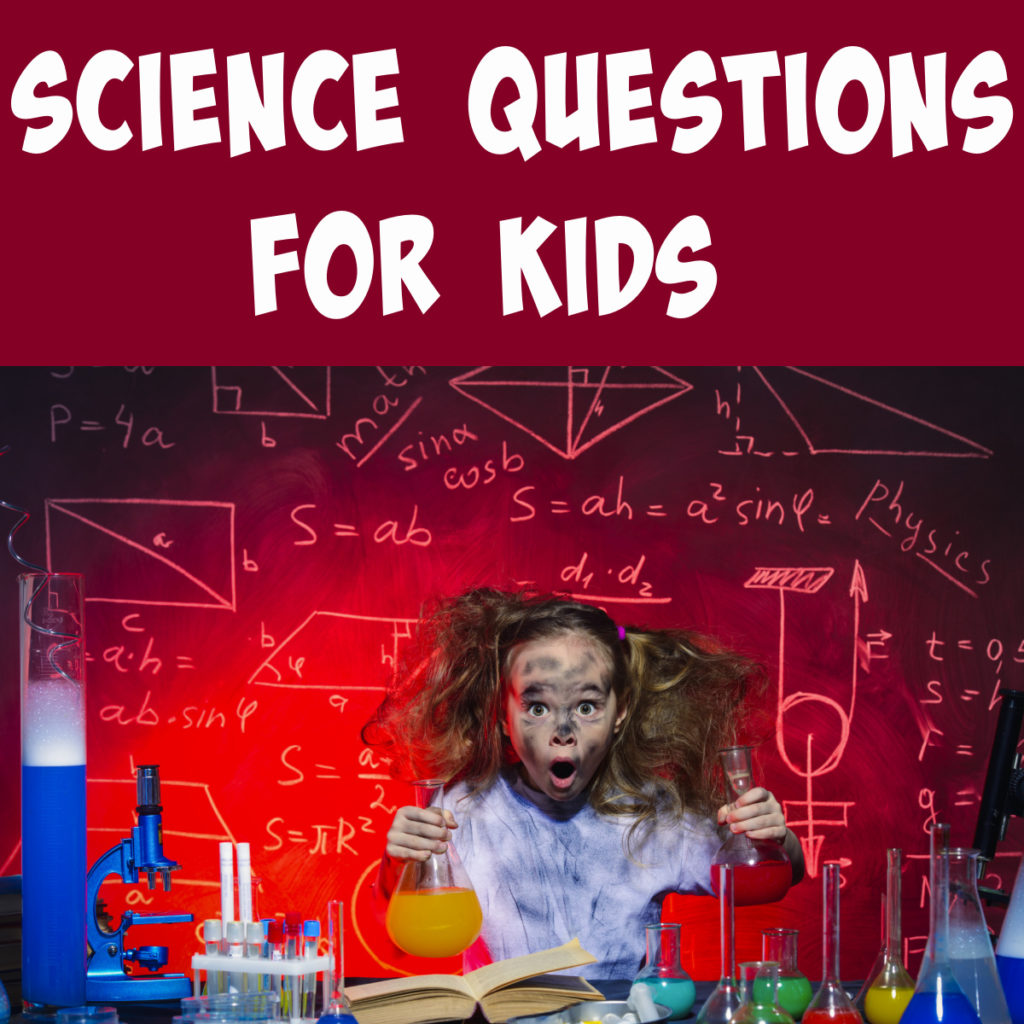
Science Questions for Kids
Questions about Earth and the Environment
What does climate change mean?
Discover what we mean by climate change and find some activities to help learn about it!
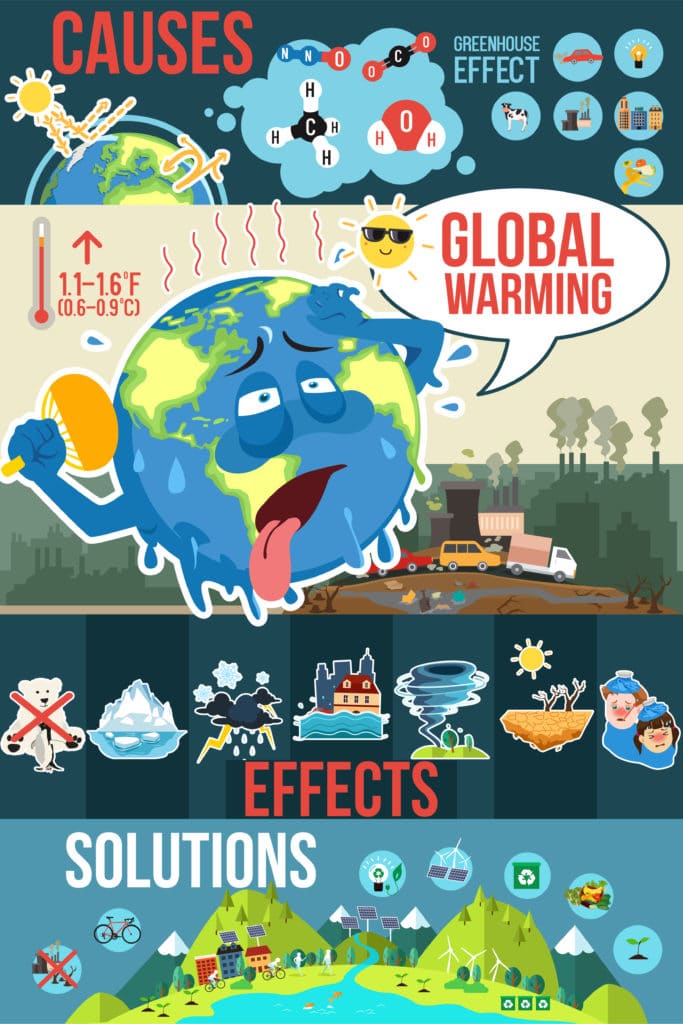
Why is the sky blue?
Find out why the sky is blue, and how to make a rainbow!
Why is the ocean blue?
The ocean looks blue as it absorbs sunlight. Blue light is absorbed the least and is reflected back into your eyes, making it look blue!
Animal Questions
Why do dogs have cold noses?
Dogs' cold noses help them smell, cool down and detect small animals nearby.
Why do dogs lick?
Dogs lick people for many reasons, it can be a sign of affection, attention or enjoyment. They might even just like the taste of whatever they're licking off!
How often do sloths poo?
Sloths spend a lot of time hanging around in trees and are known for their general slowness, but do you know how often do sloths poo?
Chemistry Questions
Why do baking soda and vinegar fizz?
I've got many, many ways to demonstrate the baking soda and vinegar reaction. It's a great first chemical reaction to learn about, and what we call an acid-base reaction! The vinegar is the acid, and the baking soda is the base ( alkali ).
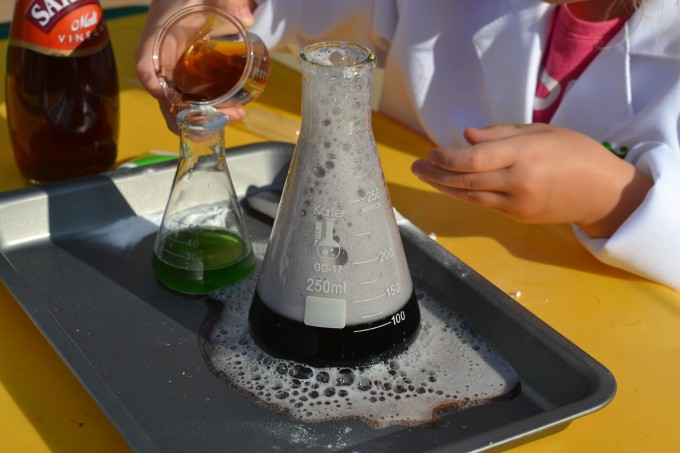
Why does salt melt snow?
Find out why salt melts snow and how it's used in practical applications.
Human Body Questions
What is a scab?
Find out why you get a scab, what they're made from and even how to make one!

What is an x-ray?
Find out about x-rays and their many uses.
Biology Science Questions for kids
What is photosynthesis
Learn about the process of photosynthesis with some easy investigations.
What is respiration?
Learn about respiration with our hands on experiments, some of these are delicious!
Do identical twins have identical fingerprints?
Identical twins often look very similar, but do identical twins have identical fingerprints?
Nature Questions
Why does bamboo grow so fast?
Find out why bamboo grows so fast and why it's so strong!
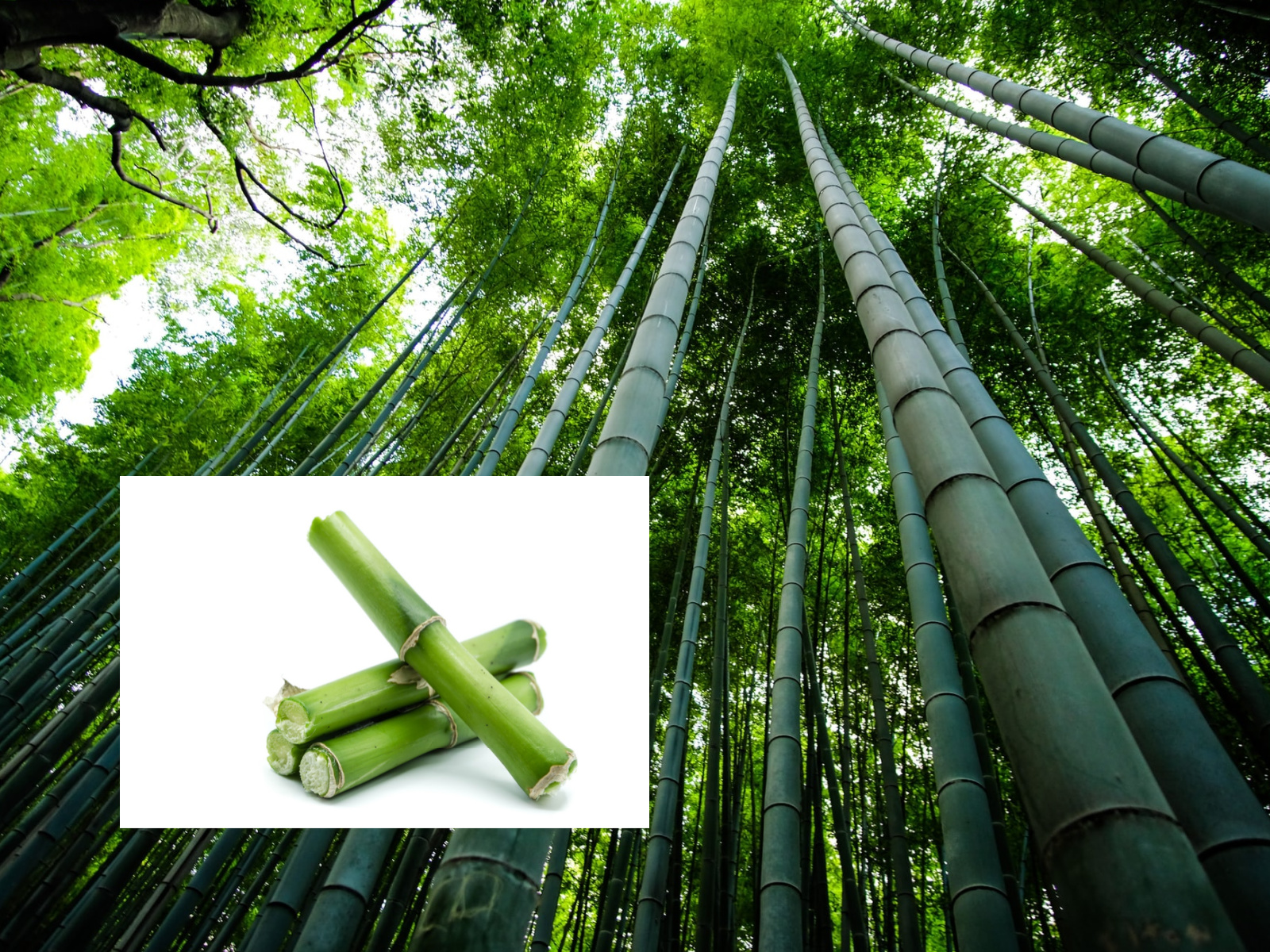
What is the biggest butterfly in the world?
What is the biggest butterfly in the world? Find out and calculate your own wingspan!
Why are leaves green?
Leaves are green as they contain a pigment called chlorophyll, which is important for absorbing sunlight for a process called photosynthesis.
Find out more about why leaves are green.
What shape is a raindrop?
What shape is a raindrop? It might not be what you think...
Why does bamboo grow so fast?
Did you know bamboo is immensely strong, grows very quickly and has 100s of uses, but why does it grow so fast?
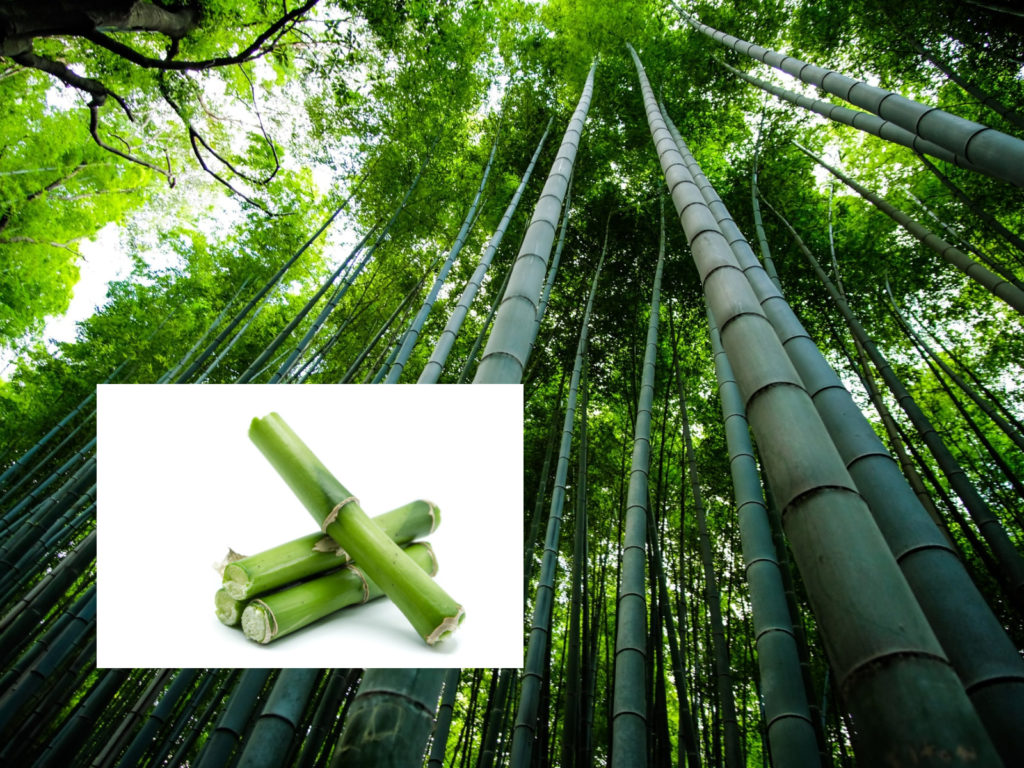
Why do bubbles pop?
Bubbles form inside a layer of soapy water, but do you know why bubbles pop?
How deep is the ocean?
The deepest part of the ocean is the Challenger Deep valley of the Mariana Trench.
Space Science Questions for Kids
Which is the hottest planet?
Venus is the hottest planet in our Solar System. Venus has a thick atmosphere which traps heat from the Sun but doesn't let it escape.
How long would it take to get to Mars?
It would take about 6 months to get to Mars and another 6 to get home. That's a long time to spend in space!
What are craters?
Find out how craters form with this easy activity using flour and marbles.
How much does the Earth weigh?
It's tricky to calculate, but scientists do know how much the Earth weighs!
What's inside the Earth?
There are several different layers inside the Earth, on the surface is a thin, rocky crust, under that is the mantle and in the centre a core made from very, very hot liquid metal. As the Earth spins the iron acts like a magnet. This is why a compass needle points the way it does.
Find out what's inside the Earth with this simple play dough model.
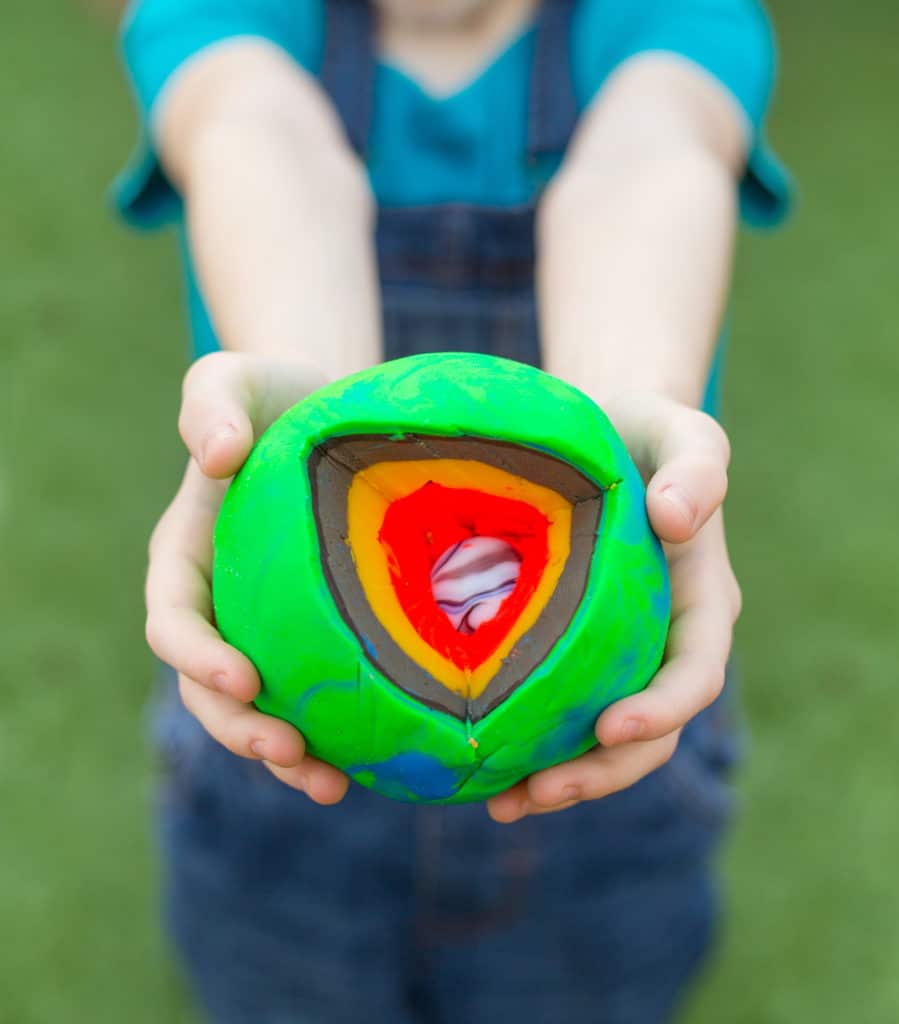
Is Pluto a planet?
Pluto was once the ninth planet of our Solar System, but was declassified in 2006 and reclassified as a Dwarf Planet. It is located in the Kuiper Belt, which is a ring of icy bodies further out than Neptune. Other Dwarf Planets are Eris, Makemake and Haumea.
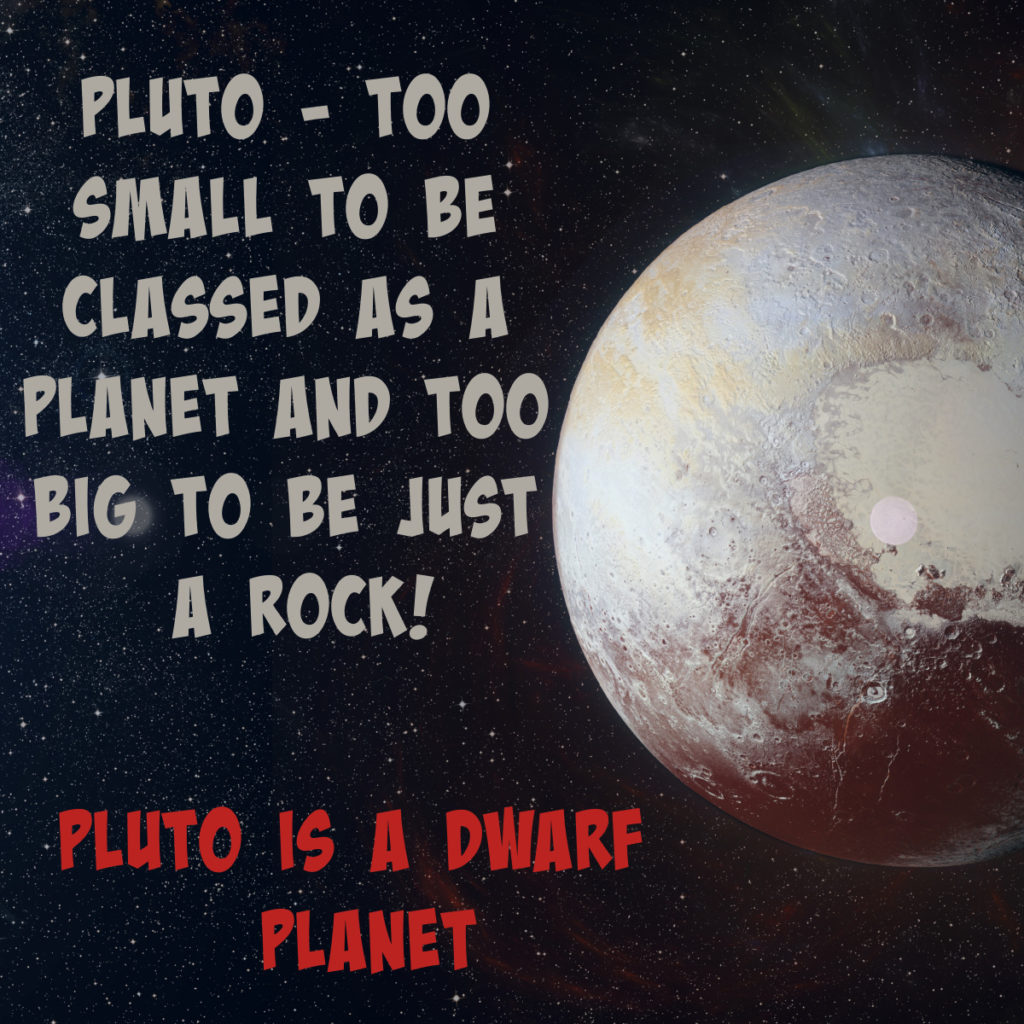
Are mass and weight the same?
The answer is NO! If you were on the Moon, your mass would be the same as on Earth, but your weight would be different! Find out how to work out weight here.
Is Mercury hot or cold?
Mercury is actually both hot and cold! Mercury rotates on its axis very slowly. It takes almost 57 Earth days to rotate. The side facing the Sun is very hot, and the side facing away from the sun is very, very cold!
What is a Moonquake?
A Moonquake is an earthquake on the Moon! There are also Marsquakes, Venusqaukes and Sunquakes!
Why do we have day and night?
The Earth spins once on its axis each day. When the Earth is facing the Sun, it is daytime, and when it spins away from the Sun, it is nighttime. You can demonstrate why we have night and day with a plasticine ball on a stick.
How do astronauts sleep?
Astronauts sleep in sleeping bags attached to the wall of a spacecraft.
What is a Goldilocks Planet?
Just like baby bear's porridge, a Goldilocks zone is where it's not too hot or too cold for life. Earth is a Goldilocks planet.
What is a group of stars called?
A group of stars is called a star cluster! Some star clusters are made up of just a few starts and some have hundreds!
How old is the Universe?
The Universe is thought to be about 13.8 billion years old, and The Big Bang is the accepted theory of how the universe began. Another interesting question about the universe is how it expands!
Questions about time
If you've got any more science questions for kids, leave me a comment, and I'll add to the list!
Question about Weather
Did you know storm naming follows a strict naming system, depending on the type of storm and its location?
Electronics questions
Batteries store chemical energy, which is converted to electrical energy when they are connected to a circuit.
Find out more about how batteries work.
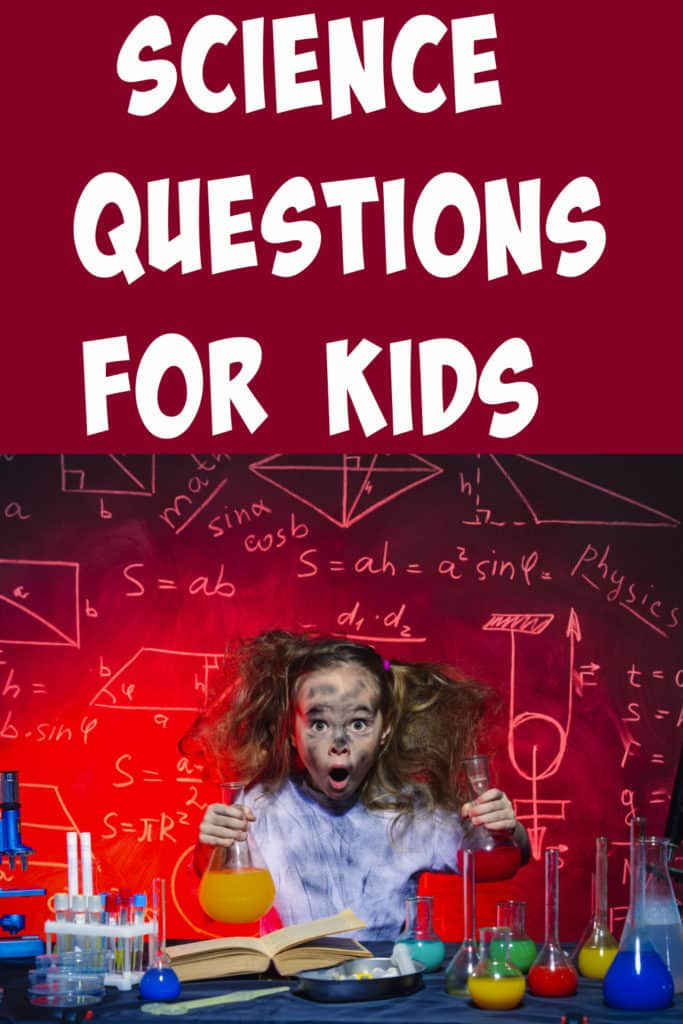
Last Updated on January 26, 2026 by Emma Vanstone
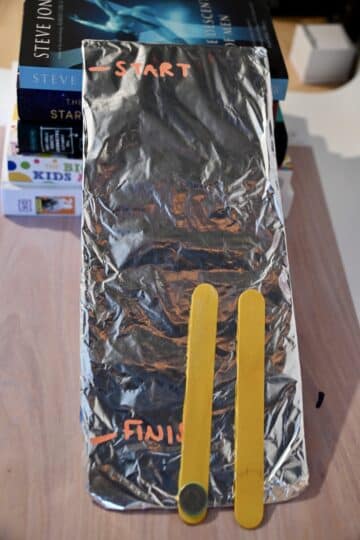
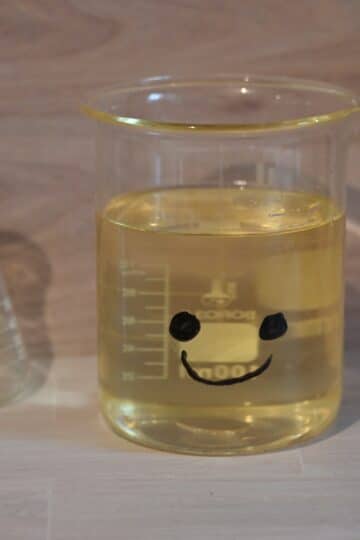
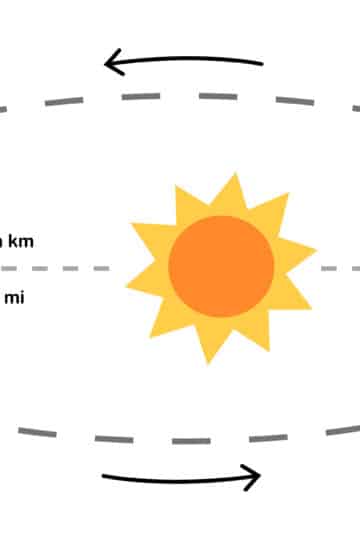
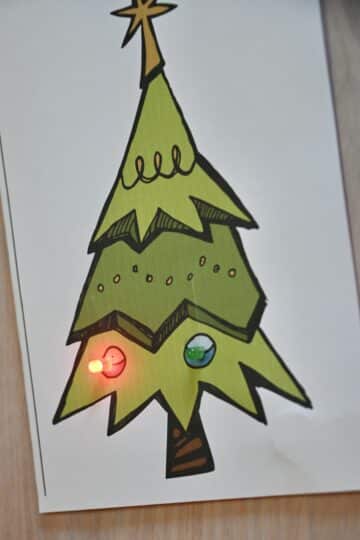
Leave a Reply